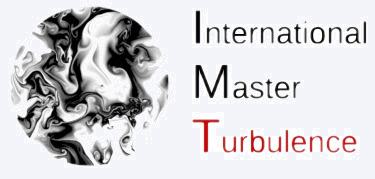Training objectives

The students will acquire theoretical, numerical and experimental skills essential for the understanding, modeling and control of turbulent flows and needed to address modern application challenges in a vast range of areas where turbulent flows are key including aerodynamics, aeroacoustics, chemical, biochemical and process engineering, environmental and urban engineering, naval engineering, turbomachinery, renewable energy, meteorology etc.
This master program offers training of the highest international standard supported by the latest research developments from internationally leading research institutions in France. The fundamental concepts of turbulence theory are taught together with advanced, state-of-the-art computational and experimental methodologies, so the student not only gains an understanding of all three, but learns how they can be used together and applied broadly. The goal is to prepare students to directly apply the acquired skills and knowledge to a wide variety of scientific and engineering disciplines where turbulent flows are a limiting factor.
Why turbulence ?
Turbulence presents one of the greatest challenges for the advancement of both science and engineering. In the absence of a complete theoretical understanding or general turbulence models, the engineering practice of dealing with turbulence is as much an art as it is science and engineering.
The program is designed to introduce students to both the science and the engineering of turbulence at an early point in their studies. This knowledge can then be applied immediately to the large number of disciplines where turbulence occurs, including environmental processes, combustion, engine technology, heat transfer, energy production, vehicle design, and most fluid/thermal/chemical systems.

Why Lille & Poitiers ?

The training is heavily supported by the internationally leading expertise of turbulence and turbulent flow researchers in the « Laboratoire de Mécanique des Fluides de Lille » (LMFL) and Pprime Institutes which covers all theoretical, computational and experimental aspects of turbulence and covers the most advanced state-of-the-art research and modeling methods.
The two institutions gather more than 100 faculty and CNRS researchers on many aspects of fluid mechanics and turbulence including leading world experts in their fields.
